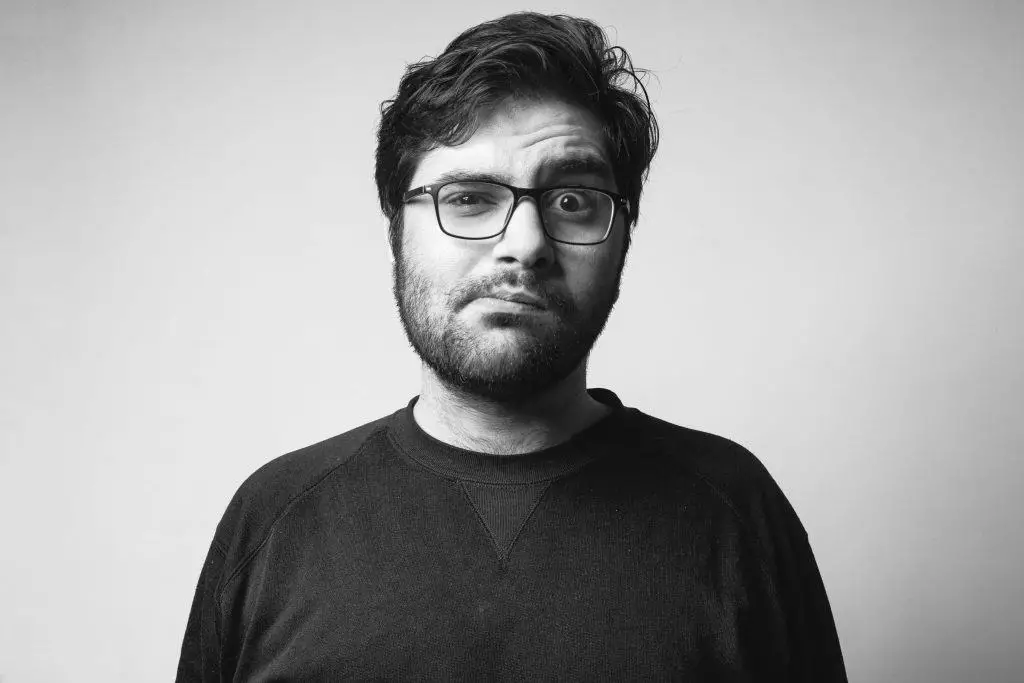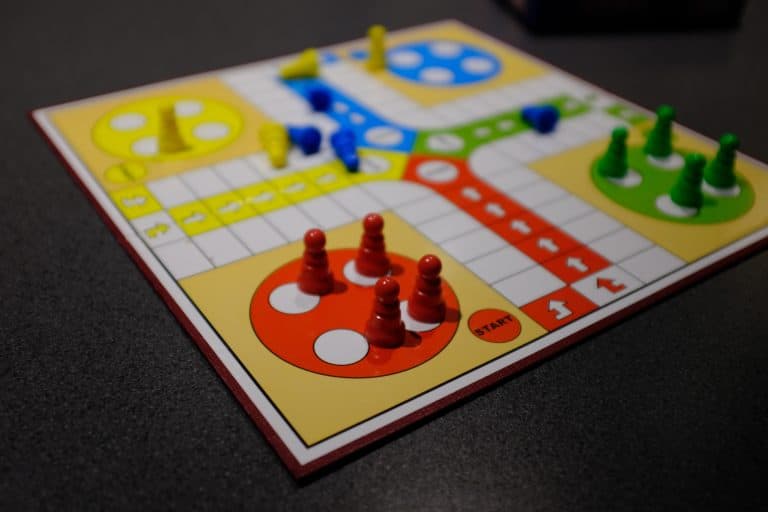No pension at 40! Now what? (Important steps to take now)
It’s no secret that pensions are becoming a rarity.
If you’re one of the millions without a pension, you may be wondering how you’ll ever be able to retire comfortably.
Don’t worry – you can use plenty of strategies to secure your retirement without a pension. They include earning more, saving more, creating assets and getting rid of debt.
Keep reading for some retirement planning tips when you have no pension at 40!

I have no pension at 40!
You face a few challenges if you have no pension at 40.
No savings means you have little or no safety net.
No pension means you’ll find making work optional one day a little trickier and will have to get pretty inventive quickly to avoid poverty in old age.
If you don’t start saving and investing soon, the cost, risk, and pain of trying to change this will worsen each year.
The growing challenge is that time is now not so much on your side. Of course, it all depends on when you think you want to retire, but you no longer have as many decades for your money to grow in various investments.
So, there is some need for you to pull your finger out and start adulting reasonably soon, if not right away.
Whatever retirement means to you is still likely to require time and money to make it happen. So, the time to get clear on what a good retirement means to you is now!
How much money do you need to live comfortably in retirement?
The eternal question, what does good look like for YOU?
- Part-time or full-time work
- Work for money or volunteer
- Leisure or hobbies
Figuring out how much money YOU need to live comfortably in retirement is important because it will help you determine how much you need to save, invest and create.
Finding out what it costs will be challenging if you don’t know what good looks like.
If you don’t know how much you will need, you may not save, invest or create enough and may have to work longer than you want to in a job you hate.
Here are a few ways to determine what life might cost later.
- What does life cost you now? How far is this away from your ideal lifestyle?
- What do you want to do, be and have between now and when you achieve your version of retirement?
- If you were looking back on your life on the last day, what do you hope you have achieved, seen, done or been part of?
Once you have a few best guesstimates, you can figure out what good looks like for you.
From this, you can begin to work out what savings and investments you might need to build and/or what income sources you might need to create to bridge any gap between where you are vs where you want to be.
Building wealth at 40 your 4 options
If you have no pension at 40 you have four options to create more savings and grow your wealth
- Save more
- Earn more
- Create more assets
- Pay off your debts
The earlier you start on all of these, the better, obviously.
However, at 40, a little bit of your time has already passed by. So now is the time to get on top of your saving and spending.
Save more for retirement
Here are a few tips to kick start your pension savings.
– Start a budget and track where you money goes.
This is the first step in finding where you can find fat or waste and trim it off your outgoings.
Tracking where your money is going and then purposely giving each £/$ a job to do rather than just flowing through your fingers will help keep more of your money yours.
– Live below your means
This is where it all begins and possibly why you don’t have any pension savings at 40.
You need to know what it costs you to live versus what you earn and create a positive gap between them.
Life can be expensive with endless drains on your money but living with your means is the unsexy but necessary habit you need to master quickly.
You won’t be able to create any sort of financial freedom or comfortable retirement if you live paycheck to paycheck.
-Save each month automatically
The best way to do this is to set up automatic transfers to your savings accounts. Let the automation take the strain and save for you without you interfering with the process.
This is one of the easiest ways to kick start your savings habit removing procrastination and dithering from the process. Set up your accounts to take the action that’s needed for you.
-Take advantage of employer retirement plans
If you haven’t already, make sure you take advantage of your employer’s pension plan, i.e. an employer’s match or free money. Yes, that’s right, your employer may be offering free money if they have a pension on offer. Check it out and get the maximum you can.
– Invest money wisely and think long term
Your options for investing are endless, but you need to be careful how and what you invest in with any spare cash.
Here’s where a little financial education would go a long way to educate yourself on the principles of successful investing vs speculating on the latest shiny thing.
Also, taking advantage of tax-efficient savings options is going to be important in keeping more of your money. This would be accounts like an ISA and a pension in the UK.
When investing money, its important to be clear about what the money is for and have a long-term vision for that money. This way, when things get rocky in the stock market or economy, you won’t panic and sell at a loss because you know what money is for.
-Be smart with your spending habits
Here’s where you can take a look at your accounts and see where and when you spend money.
Is it on the way to and from work, 2 am or when you have time on your hands.
Understanding your spending habits might be the key to saving a lot more money.
Detox your bank accounts by looking for the things you no longer need or use but are still paying for! These are often things like subscriptions long forgotten but still taking your money.
The only downside to saving is that you can probably only go so far with it. There is likely to be a limit to how frugal you can be before its not that much fun.
But there are no limits to your other option – earning more.
Earn more money for retirement
When it comes to earning more, the sky is truly the limit.
Ok, so there might be a limit on what you can earn in a certain job, career or profession, but there is no limit to what you can earn outside of this or another career choice.
If you are in a job, you could
- Ask for more money, providing you can show you are worth it
- Add more value to the company by the amount of work you do, including more hours
- Earn more for the company, therefore, showing that you are deserving of more pay.
Ensure you also take advantage of any free money on offer at your company.
This might include their pension offer, salary sacrifice service, season ticket loans, or bike to work schemes that might help you save or earn more money.
-Start a side hustle
What skills and experience have you learnt over the last 40 years that would cold turn into a part-time or full-time income?
- What are you good at?
- What do you like doing?
- What does the world need?
- What will people pay you for?
If you had an answer to all of these that you could turn into an income you might find a job that you never need to retire from.
-Sell things you no longer need
Nearly all of us have bought things but no longer use or need them, but that might well earn us a little or even a lot if tied up.
You can sell things you no longer need in-person at a car boot or garage sales online through eBay, Amazon, and Facebook marketplace.
Every little bit you earn can be used to build up your savings.
Use your laptop or phone to make money
Taking online surveys is another way to make a little extra cash.
There are surveys on all sorts of things that companies will pay you to answer questions or try new products and leave your feedback.
Find odd jobs in your neighbourhood
Walking people’s dogs, babysitting, helping someone move or paint their house, you might find there are lots of people where you live that need a hand now and again and wouldn’t mind paying you for it.
You just have to ask to be prepared for them to say no and also occasionally yes.
Create retirement assets
Generally, you can only save up to a certain amount, i.e. you can only take frugality so far.
You can earn as much as you can, but with some possible limits on the type of role, company or sector you work in.
However, for you to become a moneymaker on the journey and in retirement, you would be looking at creating more assets.
Assets mean things than go up in value and provide you with a rising income over time.
Below are the 3 moan sorts of wealth-building assets that can provide you with an income now and into retirement. They all have advantages and disadvantages but offer a way to create wealth for your future.
-Paper assets
Here we are talking about investing in the stocks and shares of the world’s great companies.
Over the long term, these great companies of the world have grown in value and provide an income through dividends.
The good side of investing is that it can be very low cost and a low hassle to get started. You just buy low cost globally diversified funds and get on with the rest of your life.
The potential downside to these at 40 you may not have as many decades to benefit from the compounding growth of the stock market.
You will also have to be prepared to understand and handle the ups and downs of the market, so you don’t get greedy or fearful for the wrong reasons at the wrong time.
-Rental properties
This is where you are renting out somewhere for people to live or store things in.
Obviously houses, office space garages and even rooms.
The upside of rental properties can be quick cash flow as well as the rising price of the property itself.
It’s also a physical asset that many people like they can see and touch, and most people can broadly judge if an area is a good place to have a rental property in or not.
The downside of property can be that it’s fairly cash intense to start up; deposits, refurbishments, fees, and taxes can make it a barrier to entry if you have no start-up capital.
There is also the issue of tenants and toilets. Even if you have a management agency, there will be times when you are required to put something right or manage disputes or changes in tenancies.
In this way, property investing is more of a hands-on process and a lot more like running a business with contractors and agents.
-Businesses and entrepreneurialism
Here, you get to use your skills and experience of 40 years of life to develop a full or part-time business.
Selling a product or service could boost your income, raise your income, or make your income more passive i.e. you create something once and then keep selling it repeatedly without much if any involvement from you.
To find the business sweet spot have a think about
- What are you good at?
- What do you love doing?
- What does the world need?
- What will people pay you for?
The upside of entrepreneurialism is that the sky is your limit. With enough time and effort, you could earn as much as you would like to.
And ideally, you could create something that you feel you never need to retire from.
The downside is that you have to be able to put in the work, deal with the pains of trial and error and for it potential to take a long time to turn a profit.
Pay off your debts
Reducing your debts is another important way to prepare for retirement and boost your pension plans.
Although it may not put money in your pocket as much as the other 3 options, it is getting you out of your deep hole and working towards a point when you won’t have this burden of repaying debt around your neck.
The first thing might be to stop the bleeding and infliction of further debts.
A few of these ideas might include
- Getting rid of credit and store cards
- Automate your repayments to make sure they happen
- Plan or budget your expenses so you know what you can and cannot spend.
- Conduct a review of your spending habits to see what is going on.
- Look at your habits and mindset around money and see how they might be helping or hindering you.
You have a few options for how to tackle your existing debt.
One is the debt snowball, where you start with your smallest, pay that off, then move to the next smallest until they are all paid off.
Another option is called the debt avalanche, where you start with the largest and pay that off first and then move to the next largest.
You must continue making minimum payments on all your debts on both methods.
Choosing which method best suits your personality could lead to serious inroads into your debt.
FAQ no pension at 40
How much pension should I have by age 40?
The amount of pension savings you should have by age 40 can vary depending on various factors including your retirement goals, expected lifestyle in retirement, and other sources of retirement income.
However, a common rule of thumb is to aim to have saved at least three times your annual salary in your pension pot by the age of 40. For example, if you earn £50,000 a year, you should aim to have £150,000 saved in your pension by the time you are 40.
Contributing at least 15% of your pre-tax income to your pension savings is also advisable. Keep in mind that these are general guidelines and it’s important to consider your personal circumstances and consult a financial planner or coach for personalized advice.
Is 40 too late to start saving for retirement?
No, starting a pension at 40 is not too late to start saving for retirement. While starting earlier is generally better due to the power of compound interest, beginning at 40 still gives you ample time to build a retirement nest egg. It’s important to recognize that you may need to save more aggressively and make smarter investment choices to make up for lost time.
Additionally, focusing on reducing debts, increasing income, and possibly planning for a slightly delayed retirement can help in building sufficient retirement savings.
Is 46 too late to save for retirement?
No, it’s never too late, even at 46, to improve your financial situation and make your retirement, whatever that means to you, more comfortable. Save and invest now; the alternative is poverty in old age.
How much money should I have by 40?
The amount of money you should have saved by age 40 can vary widely based on factors such as your income, expenses, lifestyle, and financial goals. However, a common benchmark suggested by financial experts is to aim to have three to six times your annual salary saved by the age of 40. For example, if you earn £50,000 annually, you should aim to have between £150,000 and £300,000 saved.
Here are some factors to consider:
Retirement Goals: If you have ambitious retirement goals, you might need to save more.
Debt: If you have significant debts, focusing on paying these off can be as important as saving.
Cost of Living: If you live in an area with a high cost of living, you might need to save more.
Supporting Dependents: If you have children or others who depend on you financially, this might affect how much you need to save.
Investments: If you have investments that are growing, you might not need to save as much in cash.
Pension Contributions: If you have been contributing to a pension, this should be factored into your total savings.
What happens if you retire without a pension?
If you retire without a pension, you are going to be a lot more dependent on strangers for help, need to continue to work and or drop your standard of living into your later years. This is not really a great place to be as you get older.
Better to plan, save and invest now for a comfortable retirement, whether that’s working or not.
Final thoughts: No pension at 40
So, you don’t have a pension at 40.
If you’re like most people, you don’t want to be living paycheck to paycheck when you reach retirement age.
You want options-options for how and where you live, what you do with your time, and who you spend it with.
Luckily, there are a few things you do in your 40s 40 to help make that future a reality.
You can start by figuring out what “good looks like” for you and then estimating the cost of getting there.
Once you have those numbers in hand, you can begin taking steps towards building wealth.
Depending on your situation, this could mean earning more money, saving more, investing in assets such as stocks, property or businesses, including your own entrepreneurialism and paying off your debts.
Let me help you plan and design your favourite financial future- without the stress and worry of living paycheck to paycheck in your old age.
Summary table: No Pension at 40
| No. | Steps | Actions to take |
|---|---|---|
| 1 | Save More for Retirement | Increase the percentage of your income that you save for retirement. |
| 2 | Start a Budget | Create a budget to track your income and expenses, and stick to it. |
| 3 | Live Below Your Means | Spend less than you earn to free up more money for saving and investing. |
| 4 | Save Each Month Automatically | Set up automatic transfers to your savings or retirement account each month. |
| 5 | Take Advantage of Employer Retirement Plans | Contribute to your employer’s retirement plan, especially if they match contributions. |
| 6 | Invest Money Wisely | Avoid impulsive spending and focus on buying necessary things or adding value. |
| 7 | Be Smart with Spending Habits | Build assets that generate income during retirement, including property, ebooks, courses and rental properties. |
| 8 | Earn More Money for Retirement | Look for additional sources of income such as a side hustle or part-time job. |
| 9 | Sell Things You No Longer Need | Sell items that you don’t use to generate extra cash. |
| 10 | Use Your Laptop or Phone to Make Money | Engage in online freelance work, surveys, or other online money-making activities. |
| 11 | Find Odd Jobs in Your Neighborhood | Offer services like lawn care, dog walking, or handyman services in your local area. |
| 12 | Create Retirement Assets | Offer lawn care, dog walking, or handyman/woman services in your local area. |
| 13 | Invest in Paper Assets | Invest in stocks, bonds, mutual funds |
| 14 | Invest in Rental Properties | Purchase property to rent out for a steady stream of income. |
| 15 | Engage in Businesses and Entrepreneurialism | Start a business or engage in entrepreneurial activities that can grow into assets. |
Need a Helping Hand with Your Finances? 🤝💰
If you’ve made it this far, congratulations! You’re already taking steps towards a healthier financial future. But maybe you’re feeling a bit overwhelmed. Maybe the thought of budgeting, saving, and investing still makes you break out in a cold sweat. Don’t worry, you’re not alone, and help is available.
At Financially Happy Money Coaching, I understand that money isn’t just about numbers. It’s about emotions, behaviours, and life choices. That’s why we’re here to help you take the stress out of money and build wealth in a way that aligns with your values and lifestyle.
Whether you’re just starting out on your financial journey or you’re looking to take your finances to the next level, we’re here to guide you every step of the way. I’ll help you understand your financial behaviours, set realistic goals, and create a personalized plan to achieve those goals.
So, why wait? Start your journey towards financial happiness today. Remember, the best time to start was yesterday. The second best time is now.
Click here to schedule your consultation and let’s make your money work for you, not vice versa. 💪💰
Remember, financial freedom isn’t a destination; it’s a journey. And every journey is easier when you have a guide. So, let’s embark on this journey together and create a financially happy future. 🚀💸







